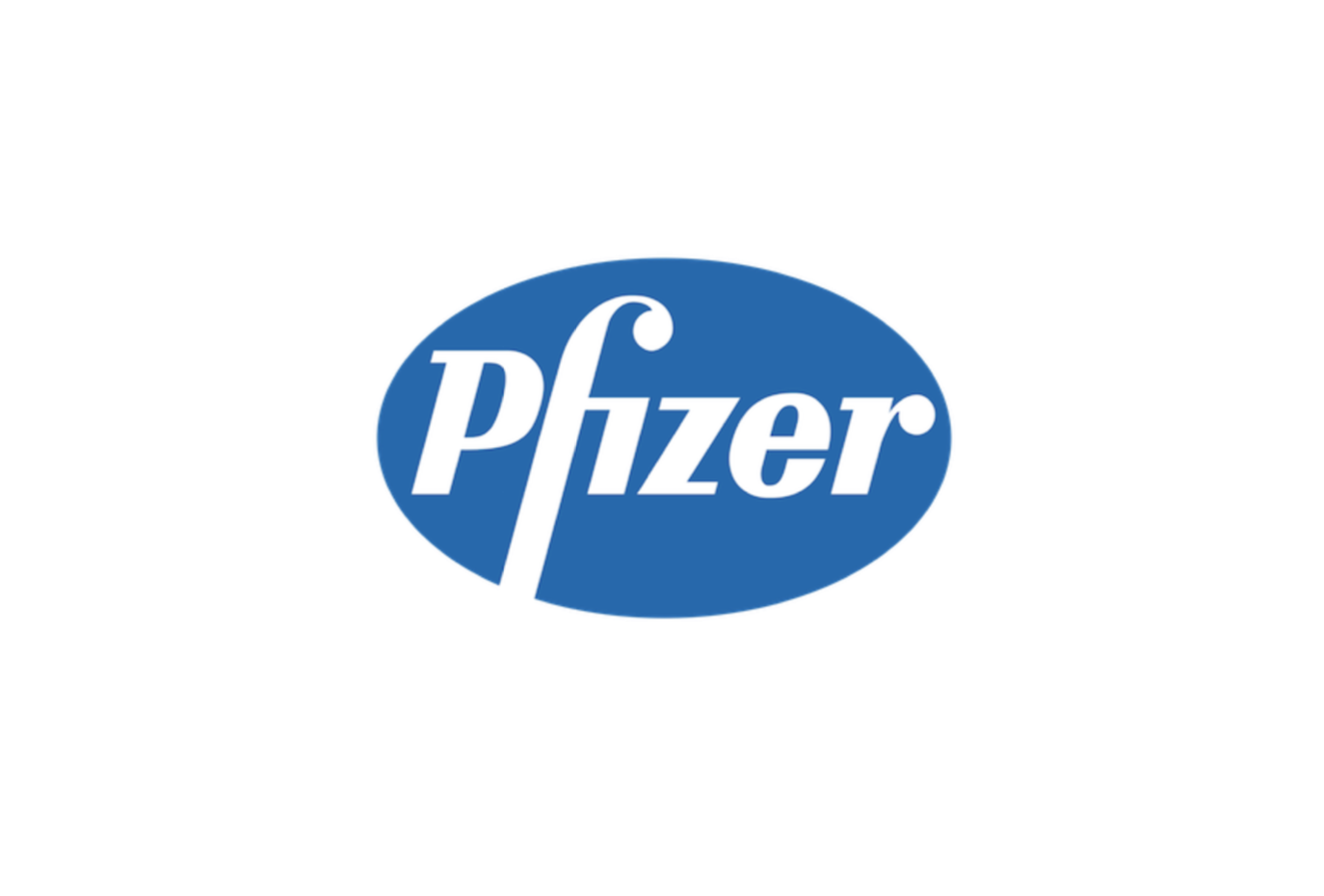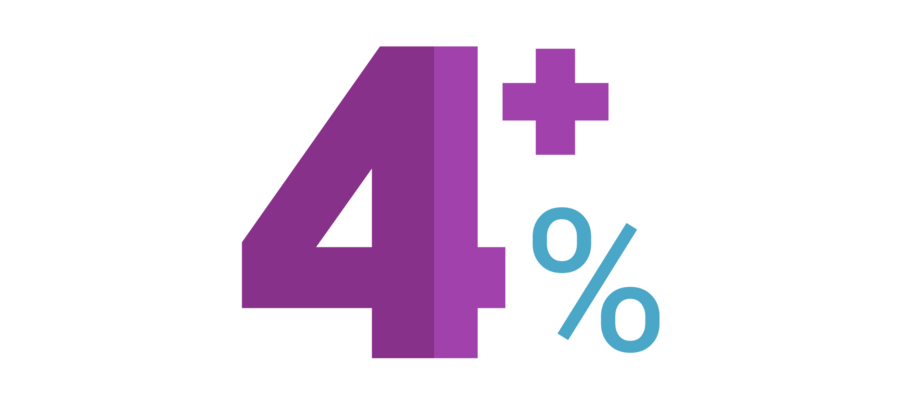
Pfizer's COVID-19 Vaccine Shows Promise; Spin-off to Execute November 13 With Dividend Adjustment Next Quarter
Pfizer announced on Monday its COVID-19 vaccine candidate was found to be more than 90% effective, and no serious safety concerns had been observed.
The drugmaker and its German partner BioNTech are the first to release successful results from a major clinical trial of a COVID-19 vaccine, according to Reuters.
More data continues to be collected, but Pfizer expects to apply for emergency use authorization from regulators once the required safety milestone is achieved, which is expected to occur in the third week of November.
The potential for a vaccine has been discussed since the pandemic set in earlier this year, but Pfizer's promising results increased the odds that a solution will indeed be found.
The stock market jumped around 3% on this news, driven by sharp rallies in industries that had been hit hardest by the pandemic (travel, retail, restaurants, banks, etc).
A successful vaccine could reduce the risk of future lockdowns, improve the outlook for global growth, and begin a path to returning the world to a more normal daily life.
But we aren't out of the woods yet. Pfizer will share additional efficacy and safety data generated from thousands of trial participants in the coming weeks. And if this vaccine makes it to the finish line, logistics challenges will need to be overcome.
There are also unanswered questions such as how long the vaccine's immunization effect will last (BioNTech hopes for a year), how many people will feel comfortable getting the vaccine, and how consumer behavior may change if a safe vaccine appears to be around the corner (will more people decide to hunker down in the months ahead to stay safe while they wait)?
Regardless, today's news was encouraging on multiple fronts. Assuming all goes well, Pfizer expects to produce globally up to 50 million vaccine doses in 2020 and up to 1.3 billion doses in 2021.
From a financial perspective, in July Pfizer reached a deal with the U.S. government to supply up to 600 million doses of its vaccine candidate.
The vaccine will be free for Americans, but the U.S. will pay Pfizer and BioNTech $1.95 billion upon the receipt of the first 100 million doses.
Financial details otherwise remain sparse, but this appears to be a multibillion-dollar revenue opportunity despite the situation's politically sensitive nature.
Pfizer generates around $40 billion of sales annually (adjusted for the upcoming spin-off of its Upjohn business), so a COVID-19 vaccine could drive revenue growth above management's 5-year target of 6% per year.
In response to this development, shares of Pfizer rallied over 10%.
Pfizer shareholders should also be aware that the firm next week will finally complete the separation of its off-patent drug business (Upjohn).
This division will be combined with generic drug maker Mylan to form a new publicly traded company called Viatris.
We reviewed these plans in detail when they were announced in July 2019. Please see our note for more background information.
Pfizer has set the close of business on Friday, November 13 as the record date for this spin-off.
Pfizer investors who hold shares on the record date will receive shares of Viatris stock when the Mylan and Upjohn businesses combine on Monday, November 16.
Investors will retain their shares of Pfizer stock, and no action is required (besides holding Pfizer shares through November 13) to receive the distributed shares of Viatris.
As we discussed last summer, Pfizer's dividend will be lowered to reflect its reduced cash flow after spinning off Upjohn.
However, new dividends paid by Viatris are expected to fully offset Pfizer's dividend reduction and keep income investors whole.
Based on what we know today, Pfizer may lower its quarterly dividend from 38 cents per share to around 34 cents, beginning with its March 2021 payment.
We expect Pfizer to retain its Safe Dividend Safety Score following the spin-off.
The firm's payout ratio will be elevated compared to its peer group, but Pfizer expects to generate 10% adjusted EPS growth over the next five years. The dividend will grow at a much slower pace, reducing the payout ratio over time.
Pfizer's cash flow should remain solid as well. The firm does not have any major patent expirations through 2025, and its portfolio remains reasonably diversified with no drug exceeding 15% of revenue last quarter.
Pfizer also retains a strong balance sheet, with Upjohn paying Pfizer $12 billion at the time of separation. Management will use these proceeds to pay down debt, improving flexibility for future acquisitions.
Viatris's dividend will likely receive a Borderline Safe rating once it announces its first payout.
While the company's scale and diversified portfolio should provide solid cash flow, Viatris will have elevated leverage after paying Pfizer a $12 billion distribution.
Ratings firm Standard & Poor's has given the firm a preliminary BBB- rating, one notch above junk, and management plans to retain up to 75% of free cash flow for deleveraging purposes.
The thoughts we shared on the business in July 2019 have not changed (see below), and please review our note for more information on Viatris:
The drugmaker and its German partner BioNTech are the first to release successful results from a major clinical trial of a COVID-19 vaccine, according to Reuters.
More data continues to be collected, but Pfizer expects to apply for emergency use authorization from regulators once the required safety milestone is achieved, which is expected to occur in the third week of November.
The potential for a vaccine has been discussed since the pandemic set in earlier this year, but Pfizer's promising results increased the odds that a solution will indeed be found.
The stock market jumped around 3% on this news, driven by sharp rallies in industries that had been hit hardest by the pandemic (travel, retail, restaurants, banks, etc).
A successful vaccine could reduce the risk of future lockdowns, improve the outlook for global growth, and begin a path to returning the world to a more normal daily life.
But we aren't out of the woods yet. Pfizer will share additional efficacy and safety data generated from thousands of trial participants in the coming weeks. And if this vaccine makes it to the finish line, logistics challenges will need to be overcome.
There are also unanswered questions such as how long the vaccine's immunization effect will last (BioNTech hopes for a year), how many people will feel comfortable getting the vaccine, and how consumer behavior may change if a safe vaccine appears to be around the corner (will more people decide to hunker down in the months ahead to stay safe while they wait)?
Regardless, today's news was encouraging on multiple fronts. Assuming all goes well, Pfizer expects to produce globally up to 50 million vaccine doses in 2020 and up to 1.3 billion doses in 2021.
From a financial perspective, in July Pfizer reached a deal with the U.S. government to supply up to 600 million doses of its vaccine candidate.
The vaccine will be free for Americans, but the U.S. will pay Pfizer and BioNTech $1.95 billion upon the receipt of the first 100 million doses.
Financial details otherwise remain sparse, but this appears to be a multibillion-dollar revenue opportunity despite the situation's politically sensitive nature.
Pfizer generates around $40 billion of sales annually (adjusted for the upcoming spin-off of its Upjohn business), so a COVID-19 vaccine could drive revenue growth above management's 5-year target of 6% per year.
In response to this development, shares of Pfizer rallied over 10%.
Pfizer shareholders should also be aware that the firm next week will finally complete the separation of its off-patent drug business (Upjohn).
This division will be combined with generic drug maker Mylan to form a new publicly traded company called Viatris.
We reviewed these plans in detail when they were announced in July 2019. Please see our note for more background information.
Pfizer has set the close of business on Friday, November 13 as the record date for this spin-off.
Pfizer investors who hold shares on the record date will receive shares of Viatris stock when the Mylan and Upjohn businesses combine on Monday, November 16.
Investors will retain their shares of Pfizer stock, and no action is required (besides holding Pfizer shares through November 13) to receive the distributed shares of Viatris.
As we discussed last summer, Pfizer's dividend will be lowered to reflect its reduced cash flow after spinning off Upjohn.
However, new dividends paid by Viatris are expected to fully offset Pfizer's dividend reduction and keep income investors whole.
Based on what we know today, Pfizer may lower its quarterly dividend from 38 cents per share to around 34 cents, beginning with its March 2021 payment.
We expect Pfizer to retain its Safe Dividend Safety Score following the spin-off.
The firm's payout ratio will be elevated compared to its peer group, but Pfizer expects to generate 10% adjusted EPS growth over the next five years. The dividend will grow at a much slower pace, reducing the payout ratio over time.
Pfizer's cash flow should remain solid as well. The firm does not have any major patent expirations through 2025, and its portfolio remains reasonably diversified with no drug exceeding 15% of revenue last quarter.
Pfizer also retains a strong balance sheet, with Upjohn paying Pfizer $12 billion at the time of separation. Management will use these proceeds to pay down debt, improving flexibility for future acquisitions.
Viatris's dividend will likely receive a Borderline Safe rating once it announces its first payout.
While the company's scale and diversified portfolio should provide solid cash flow, Viatris will have elevated leverage after paying Pfizer a $12 billion distribution.
Ratings firm Standard & Poor's has given the firm a preliminary BBB- rating, one notch above junk, and management plans to retain up to 75% of free cash flow for deleveraging purposes.
The thoughts we shared on the business in July 2019 have not changed (see below), and please review our note for more information on Viatris:
Ultimately, the new Upjohn-Mylan company doesn't look like much to get excited about. The firm consists of two mature businesses that each face their own growth headwinds and risks, and the balance sheet does not provide much flexibility in the short term if the ice cube melts much faster than expected (though that seems unlikely).
On the bright side, Pfizer struck a deal with Mylan at an interesting time when the generic drugmaker's valuation was in the dumps. The new company should generate decent cash flow and benefit from greater scale. It's also focused wisely on returning capital to shareholders.
We plan to continue holding our shares of Pfizer in our Conservative Retirees portfolio. We like the company's focus on higher-margin, faster-growing prescription drugs without betting its future on any single product.
However, we are open to parting ways with Viatris in favor of a company with a healthier balance sheet and clearer path to long-term growth.
We will wait for the spin-off company to stand on its own before making any final decisions and will provide updates as needed.



